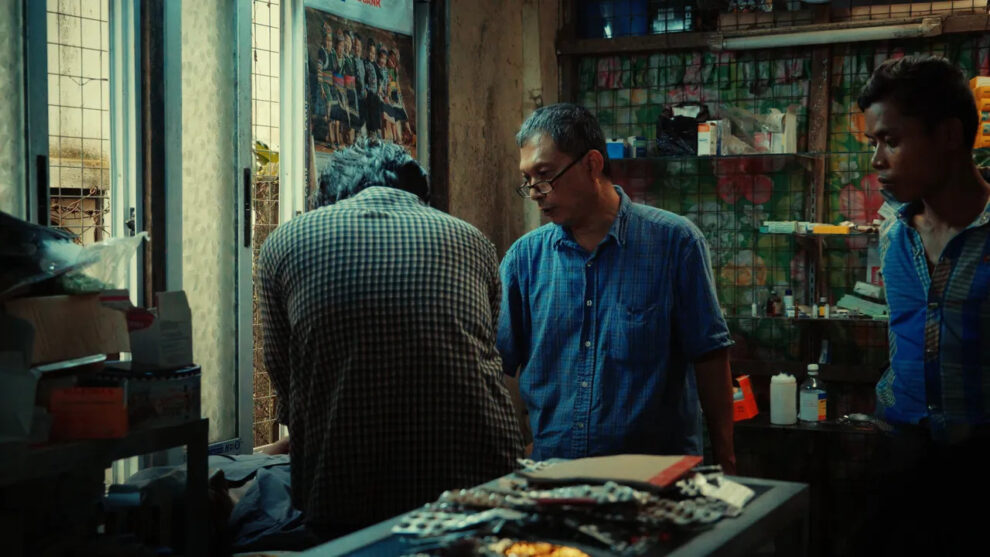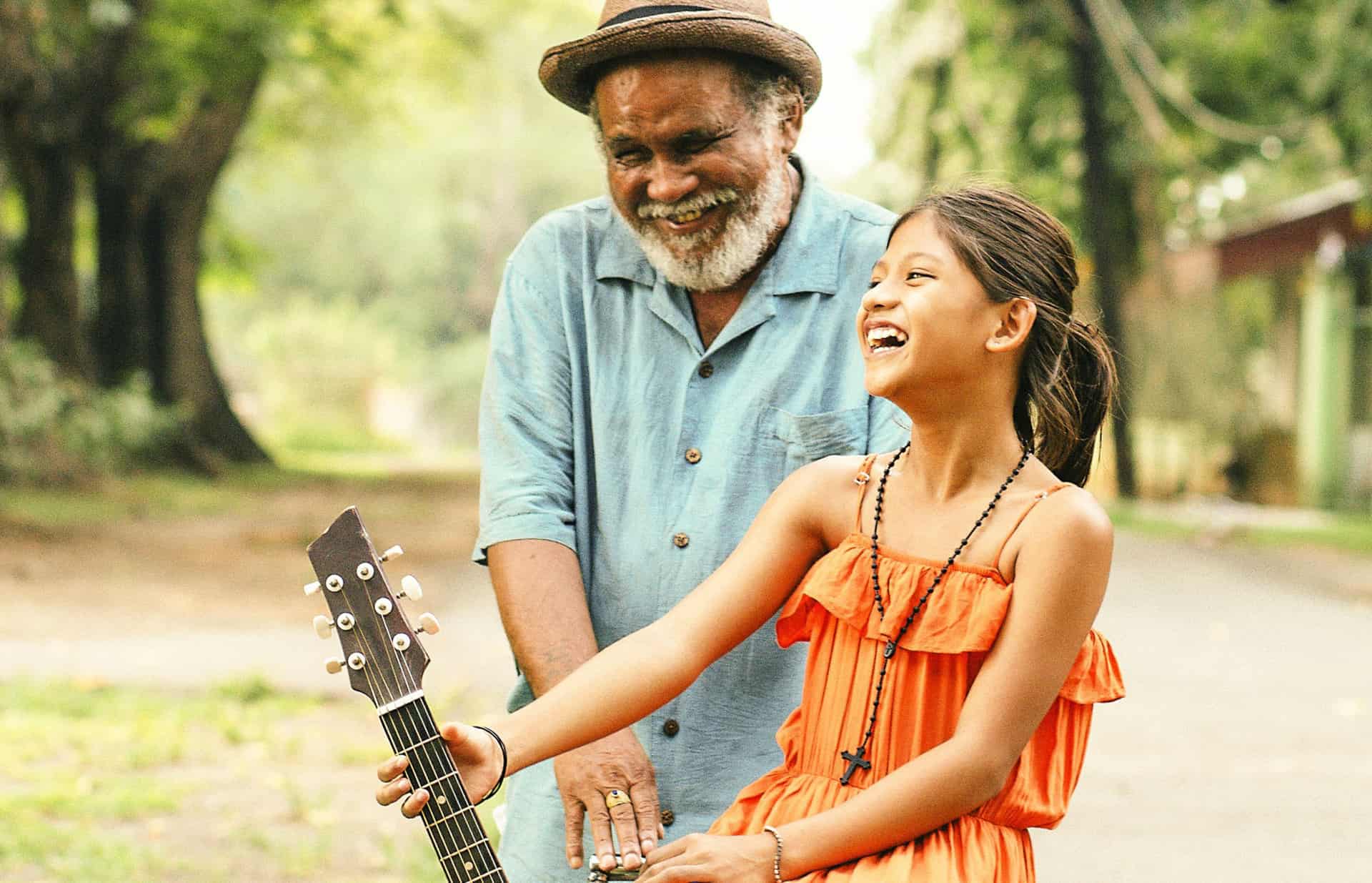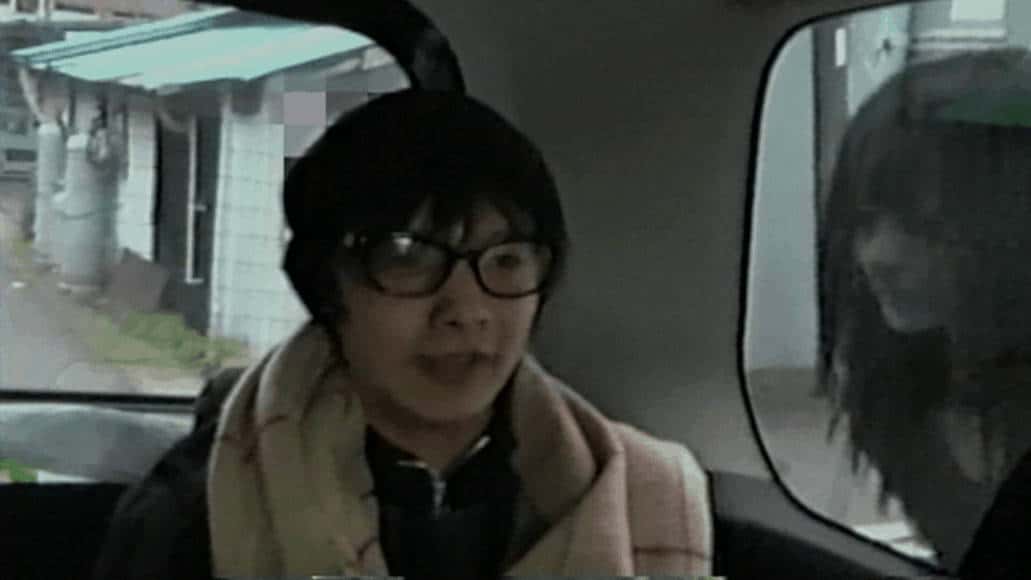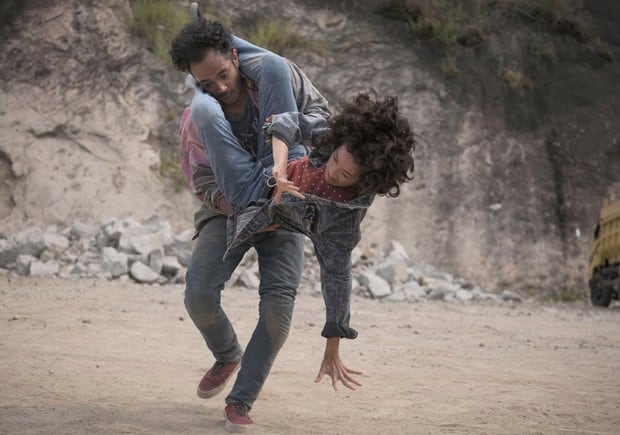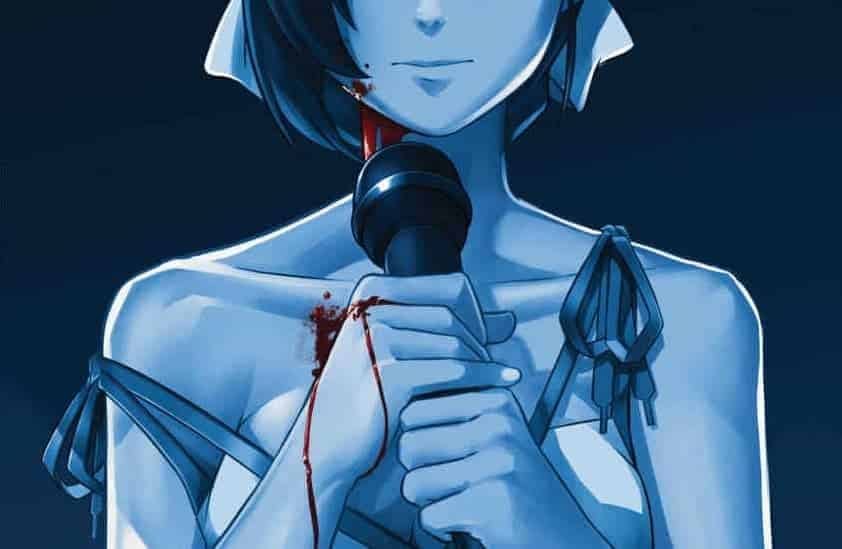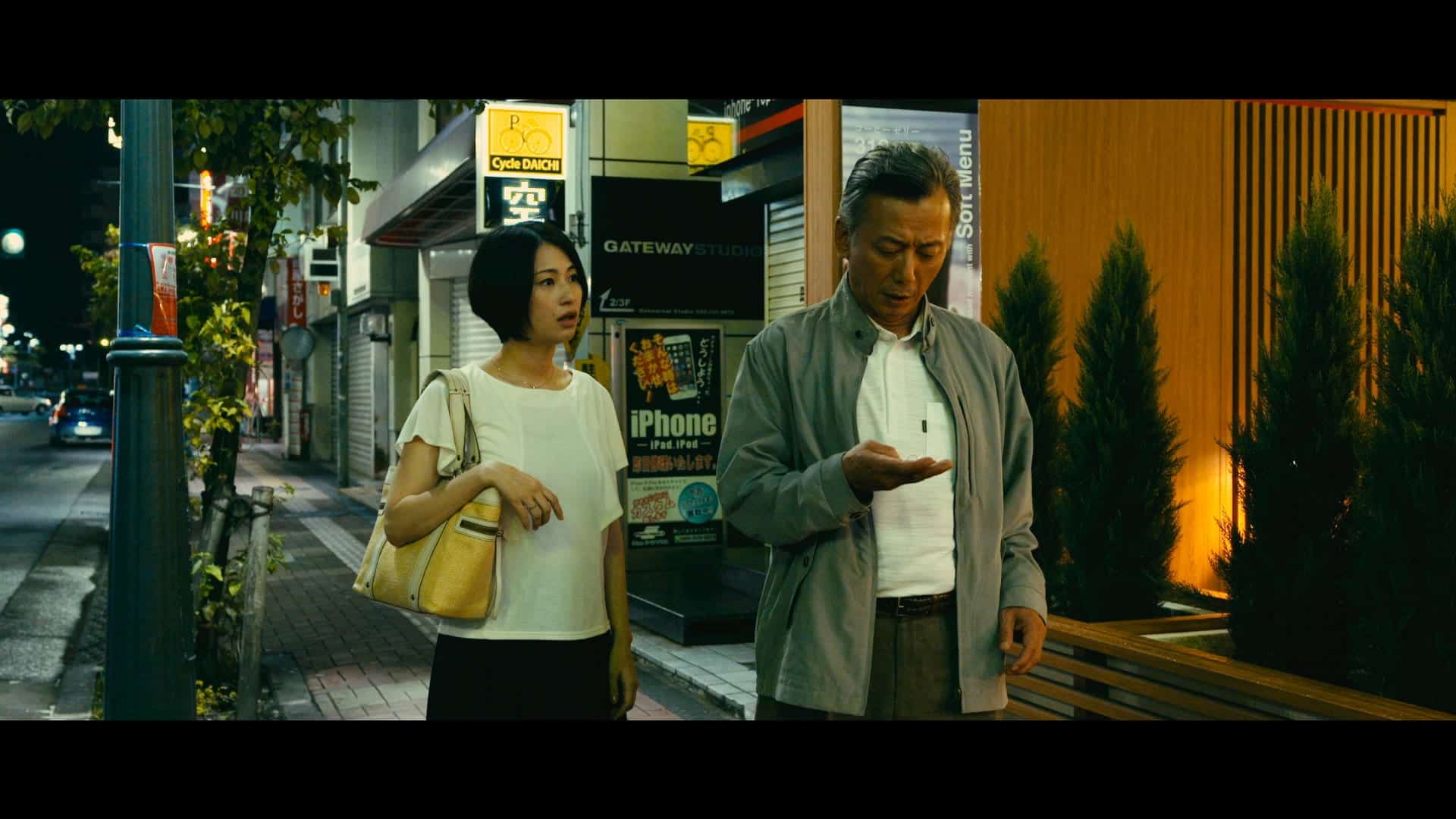While the concept of the docudrama is becoming increasingly popular, particularly in festival circles, it is good to remember that Midi Z has been shooting films that top the category since 2016 and “City of Jade” and “Road to Mandalay”. His prowess in shooting documentaries in a way that they look like dramas continues with another captivating story in “The Clinic”.
The Clinic is screening at Museum of the Moving Image, as part of the First Look 2024 program
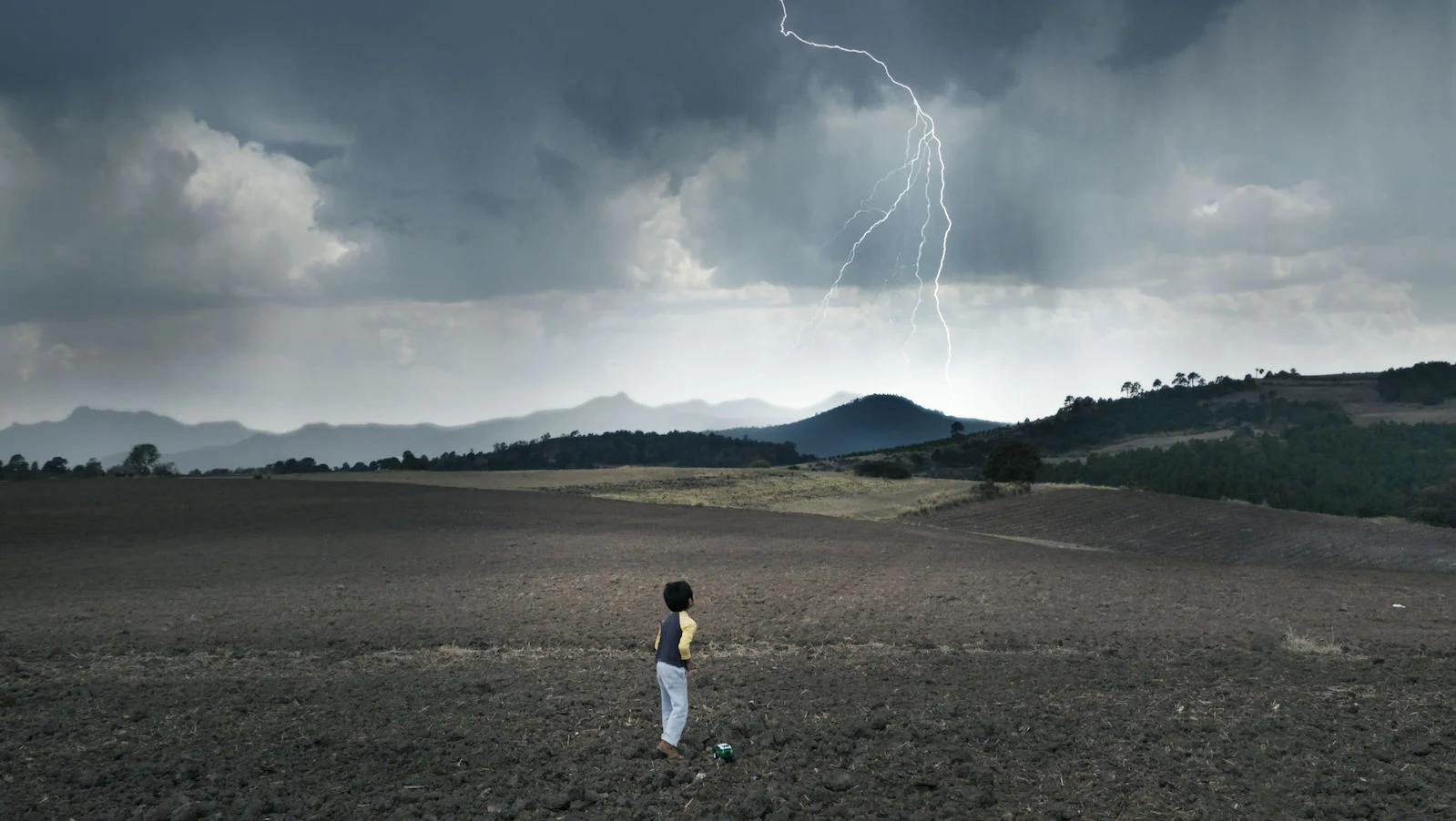
In Yangon, Myanmar's largest city, a doctor-couple, Aung Ming and San San Oo, operate a neighborhood clinic, providing low-cost treatments and therapies for a wide variety of ailments, mostly ailing alcoholics, drug addicts, and in general people who live on the edge of society. The initial scene, where Aung Ming treats a chronic alcoholic who has left a wound in his wound fester so much that it has filled with worms and the leg needs to be cut, sets the tone of the first part of the movie, which deals with the capacity of the two as doctors. A bit later on, San San Oo receives a call at night by the mother of a drug addict who is experiencing mania, and tries to help through the phone, in a situation that definitely looks desperate.
The couple, however, are not only doctors, but also artists. San San Oo paints, with her paintings appearing throughout the film, while Aung Ming is shooting a movie, having a Rohingya play a Rakhine. The choice is rather daring for both director and actor, as the sectarian violence between the Rohingya Muslim and Rakhine Buddhist communities has been going on since the 40s. The film even finds its way to a number of festivals, where the audience's reaction, though, is occasionally extreme.
Check the interview with the director
Midi Z shoots a rather impactful film that combines the documentary and the drama (without any kind of fictitious elements though) in the most eloquent fashion, benefitting by two very crucial factors. The first is definitely the personalities and work of the two doctors, who manage to deal with rather harsh cases of mental and physical illnesses while still finding time for their art, in two rather remarkable individuals.
The second is how their life and work mirrors and presents life in Myanmar from 2017, when the story starts, until 2021, and the coup that established the junta in the country. As such, the fact that something is not going well with healthcare on various levels in the country becomes abundantly clear, while discussions about the state of Myanmar, corruption, racism, incompetence and the Rohingya people also move in the same path. Expectedly, the now renowned yoga video from the day of the coup is also included, cementing this part in the most impactful way. At the same time, the fact that Midi Z does not include narration, as it is quite frequent in documentaries, but lets his audience make their own assessment of what is happening actually increases the impact of the documentary and its brutal realism.
Peter Pan's cinematography captures the small kiosk-like shed that functions as the clinic in a way that makes it appear as a location out of fairy tale, barring the harshly pragmatic events that take place inside it. The way he uses doors and windows for his framing is also excellent, in one of the best traits of the documentary.
Wu Ke-xi and Midi Z's editing connect the various aspects of the film nicely, essentially creating a rather appealing story with beginning, middle and ending, even if in a somewhat abstract fashion. The pace, which is relatively fast for such a production, also fits the narrative nicely, while at 87 minutes, and considering the depth of the story and the variety of episodes, the movie definitely does not overextend its welcome.
Midi Z is a master of the docudrama, even to a level that makes an actual documentary also function as a drama, and “The Clinic” is a definite testament to the fact.


